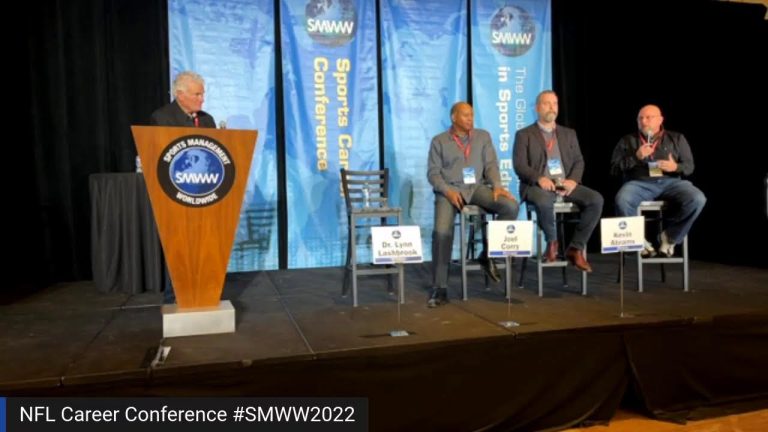
Are you curious about the intricate world of negotiating player contracts? Look no further! In this article, we delve into the art of securing the best deals for athletes in the competitive realm of professional sports. From understanding the importance of leverage to navigating complex salary structures, we uncover the key strategies and tactics employed by agents and team executives. Whether you’re an aspiring sports agent or simply fascinated by the business side of sports, this insightful piece will leave you captivated and eager to learn more.
How can a player contract be negotiated?
When it comes to negotiating a player contract, effective communication is the ultimate game-changer. The key lies in articulating your desires, capabilities, and willingness to find middle ground. It is equally crucial to actively listen and comprehend the opposing party’s requirements, concerns, and motivations. By fostering open and honest dialogue, a successful negotiation can be achieved, ensuring both parties are satisfied with the outcome.
What are the factors to consider in contract negotiations?
When entering into contract negotiations, it is crucial to thoroughly understand the other party’s goals and objectives. By conducting research beforehand, you can gain valuable insights into their interests, strengths, weaknesses, and the external factors that might impact the negotiation process. This preparation allows you to approach the negotiation table with a strategic advantage, enabling a more productive and favorable outcome.
In order to negotiate a successful contract, it is vital to consider the interests of the other party. Understanding their needs and desires allows you to identify potential areas of compromise and find mutually beneficial solutions. By demonstrating your willingness to accommodate their interests, you can build trust and foster a more collaborative negotiation environment.
Additionally, it is important to assess the strengths and weaknesses of both parties involved. This evaluation allows you to leverage your own strengths while exploiting any weaknesses in the other party’s position. By strategically positioning yourself, you can maximize your chances of achieving a favorable outcome during the negotiation process.
In conclusion, thorough preparation and consideration of the other party’s goals, interests, strengths, weaknesses, and external factors are essential when negotiating a contract. By taking these factors into account, you can approach the negotiation table with confidence, build trust, and increase the likelihood of reaching a mutually beneficial agreement.
What rules should be followed to negotiate effectively?
Negotiating effectively requires mastering three key rules. Firstly, it is crucial to do thorough preparation before entering into any negotiation. This involves researching the other party’s interests, understanding their priorities, and anticipating possible objections. By being well-informed and having a clear strategy in mind, negotiators can confidently navigate through the discussion. Secondly, active listening plays a pivotal role in successful negotiations. Being attentive and empathetic towards the other party’s needs fosters a collaborative atmosphere and helps build trust. This communication skill allows negotiators to identify common ground and find mutually beneficial solutions. Lastly, maintaining a flexible mindset is essential. Negotiations often require compromise, and being open to alternative proposals can lead to more favorable outcomes. Adapting to new information and being willing to explore creative options can help negotiators reach successful agreements. Overall, effective negotiation hinges on thorough preparation, active listening, and a flexible approach.
Mastering the Game: Proven Strategies for Successful Player Contracts
Mastering the Game: Proven Strategies for Successful Player Contracts
In the fiercely competitive world of professional sports, negotiating player contracts requires a delicate balance of skill, knowledge, and strategy. To truly master the game, it is essential to employ proven strategies that not only secure lucrative deals but also protect the long-term interests of both players and teams. By meticulously analyzing market trends, understanding the unique value that each player brings, and maintaining open lines of communication, agents and team executives can navigate the complex landscape of player contracts with finesse, ensuring success for all parties involved. With these time-tested strategies, the game of negotiating player contracts can be transformed into a winning endeavor, setting the stage for a prosperous future in the world of sports.
Securing Victory: The Ultimate Guide to Successful Player Contract Negotiations
Securing Victory: The Ultimate Guide to Successful Player Contract Negotiations
In the fiercely competitive world of professional sports, securing a victory goes beyond the field. It starts with successful player contract negotiations. A well-negotiated contract can not only ensure financial security for players but also provide them with the necessary resources and support to excel in their careers. By understanding the intricacies of the negotiation process, players can position themselves for success and secure contracts that truly reflect their worth and potential.
When it comes to player contract negotiations, preparation is key. Players must diligently research their market value, taking into account their performance statistics, previous contracts, and the current market trends. Armed with this knowledge, they can confidently enter negotiations, knowing their worth and demanding fair compensation. Additionally, players should identify their priorities and long-term goals, determining the non-monetary factors that are crucial to their success. Whether it’s favorable playing conditions, access to top-notch training facilities, or guaranteed playing time, incorporating these elements into the negotiation strategy can significantly increase the chances of securing a contract that aligns with their objectives.
In the world of professional sports, negotiating player contracts requires a delicate balance between financial considerations and the desire for team success. By employing strategic tactics and leveraging market trends, teams can secure top talent while ensuring long-term sustainability. Ultimately, the ability to navigate these negotiations with finesse not only impacts the financial health of the organization but also sets the stage for future success on the field. It is a high-stakes game that demands meticulous attention to detail, but when executed skillfully, it can lead to a winning formula that propels teams to new heights.
